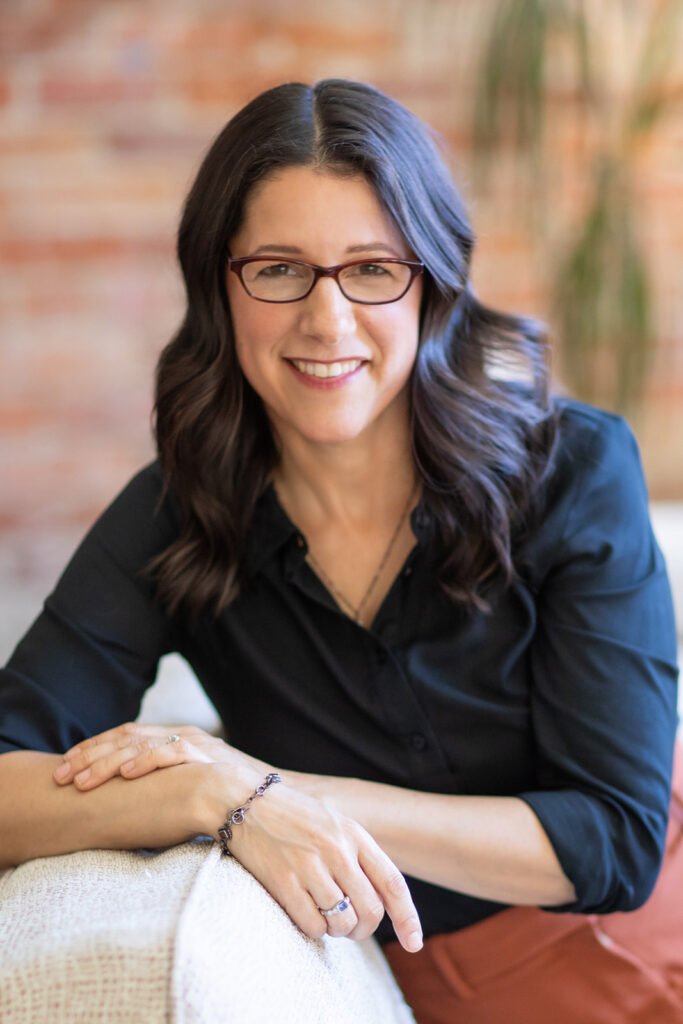frequently asked questions
How many hours is the course?
The main lessons take 8 hours total to complete. For those interested, an additional 8 hours of bonus materials are provided for free, including a full-length introductory lesson, question and answer audio recordings, and an extra lecture.
What’s included in the course? Can you describe the lessons?
There are nine lessons in the course that are about an hour each in length. Lessons are accessed through a private members-only website. Each lesson includes:
Introduction to the lesson (2-3 minutes)
Lecture – A video lecture laying out the main message for the lesson (20 minutes)
Animation – An animated story that makes the point of the lesson in a practical way using real-life stories taken from the creator’s own lives (5-7 minutes)
Metaphor – A video lecture with graphic illustrations (10-12 minutes)
Discussion – Each week the most common questions from that lesson are discussed with a variety of guest presenters. The presenters are some of the most well-respected professionals in our field. Scroll up on this information page to see a list of the presenters (15-20 minutes)
Reflective Questions delivered to your email inbox weekly
Two Q and A sessions (recorded webinars) at Lesson 4 and Lesson 7 (60 minutes each)
Private Facebook Forum
Resource Materials: Transcripts, Summary Points, and downloadable audio are available for all lessons, as well as additional supportive materials included in the course
When do I get access to the course content?
Once you purchase the course, you will get immediate access to all the course content. You can watch it at your own pace (although we recommend you watch 1-2 lessons a week).
Can I learn at my own pace?
Once you purchase the course, the entire course content is accessible 24/7 for you to view when it is convenient for you.
Please keep in mind that the course is designed to take you through the process of learning in a very deliberate and thoughtful way.
You’ll get the most out of the course if you give yourself time between lessons to reflect on and absorb what was presented in the lesson before moving on. It helps to leave a few days to between lessons to let the ideas simmer in the back of your mind. But try to avoid leaving more than 2 weeks between lessons or you’ll lose your momentum.
You may be so excited and motivated to go through faster than that. This course belongs to you to do as you wish, and you know your own learning style.
We suggest that you at least try the 1-2 lessons a week schedule to see if it works for you. If you decide to binge-watch it, we recommend that you revisit the course again in the future at a slower pace.
Do I have to participate at certain times?
The course is accessible 24/7. Nothing is scheduled. We do, however, recommend that you find a time in your schedule once or twice a week when you know you’ll be able to devote the time it takes. The benefit of the course only comes when you’ve completed it so setting a schedule and keeping it will ensure that you get the maximum benefit from the time and money you invest.
Who teaches the course?
The course was created, designed and implemented by Kara Stamback, M. S., Erika Bugbee, M.S., and George Pransky, Ph.D. The lectures are presented by Dr. George Pransky. Kara Stamback and Erika Bugbee host the course, serve as narrative guides, present the animated stories, and facilitate the discussions with the guest speakers for each lesson. You can learn more about Kara, Erika and George in the About Us section of this page.
I've seen reference to the Three Principles on this info page. Does it matter if I’ve never heard of that and don't know anything about it? And for my wife, who's already learned a bunch about these principles already, will she learn too or is this course just for beginners?
We designed this online course with both new and seasoned students in mind. The course is based on simple principles behind all human experience, including happiness and stress. These principles are broken down and explained very clearly in this course, and so no prior knowledge is necessary.
However, if you have heard of, learned or studied these principles before, the unique expression and the depth of the presentations will serve to further your learning in a structured learning environment.
I’d like to purchase this course for all of the members of my family, the sales department in my company, or for the management team I’m coaching, Can I get a discount if I order it for a group?
Absolutely. We welcome the opportunity to help groups of any size and offer group discounts for groups of 6 or more. Examples of groups we’ve extended discounts to have been schools, organizations, companies, and families. Click here to contact us directly and we can discuss discounts based on your group size.
What happens at the end of the course? What if I forget what I learned or how to apply it afterwards?
This course is designed to have a significant impact on the quality of your life and to have a lasting effect. However, like anything else, the more you keep the learning alive and look for the relevance in your life, the more benefit you’ll continue to see. This is one of the reasons that we made all of the components downloadable and why we give you unlimited access for as long as the course exists online.
We recommend you revisit the material more than once. People comment regularly that they find a very refreshing effect after coming back to the lessons and that they hear things they didn’t hear the first time around.
Revisit the lessons you liked most or the ones you don’t remember. Browsing the private Facebook forum archive discussions is also an excellent way to refresh what you’ve learned and keep your learning alive. Or if you’d like to take further steps in your learning you can consider signing up for a coaching package or our 4-day Intensive program.
How long is the material available to me after I complete the course?
Once you’ve completed the course your password will allow you access for as long as the course exists online. You’re also welcome to download the audio and written components of the course and view it offline whenever you’d like.
What if I have questions during the course?
We put a tremendous amount of planning into anticipating your questions and incorporating answers into the course. But questions may still arise.
There are several resources to field your questions:
*Private Facebook Forum discussion archives
*Two Question and Answer sessions (pre-recorded webinars)
When these webinars were recorded they were populated by real questions from participants that were at these very points in the course (lessons 4 and 7). When you listen to them you may hear your own questions represented. These are a rich source of content that is different from the rest of the course content. We used the questions to connect the dots and show the application to real-life situations.
*A limited number of one-on-one 4-Session Coaching Packages are available.
What’s the purpose of the coaching packages and what are the benefits?
Our one-on-on 4-Session Coaching Packages give you an opportunity to discuss your learning with an experienced practitioner. It allows you to ask questions or see an application to a particular issue or problem you’re facing. It’s like having a personal guide throughout the course and your life during the course. You can purchase a coaching package anytime.
To learn more about coaching, click here to contact us directly. We’ll connect you with one of the coaches (Erika Bubgee, M.A. or Kara Stamback, M.S.) to discuss further.
The course description says that this course is not based on self-analysis, processing or positive thinking or behavioral techniques. If the change that the course suggests doesn’t come from those processes, how does it happen?
This course is devoted to teaching people about where our experience of life comes from – what we go through, how life affects us, all the feelings and emotions we have. The course is empowered by the process of people disengaging from their normal way of thinking about things, clearing their heads, and listening. The bi-product of true listening is insight. That’s the goal of this course — to promote insights from within the course participant. Those insights create immediate and lasting change.
Through this process, people engage with the material very differently, because when people’s minds are open they are able to learn and absorb. What we’re teaching is within people’s nature in the same way that learning a language is within their nature.
The profound and essential nature of the subject matter, combined with the impact of listening with an open mind results in moments of insight. It’s those moments of insight that raise people’s levels of well-being, resilience, and emotional stability.
Is this course only for people who have problems, or will I get something even if my life is pretty good?
Everyone, even the happiest and highest functioning people get caught in habits within their thinking that’s problematic for them in some area of their life. As people get a better understanding of how their mind works, they spend less time caught in their habits, leaving their minds free more of the time. As a result, they feel more connected to the people in their lives, and do better at work, in parenting, and navigating challenges, and overall have nicer, richer lives.
What if I’m very troubled or I have been diagnosed with a mental illness, can this course help me?
The understanding that is presented in this course has the potential to help anyone. Anyone, no matter how troubled, can have a change of heart, an epiphany, a defining moment, and discover a new lease on life. The entire purpose of this course is to promote moments like that, and from our experience, there’s no limit to who can change, how much someone can change, or when that change will happen. We’re baised of course because we believe in the work we do and what we share in this course. But for us, the truth contained in this course can open a door to change for anyone, even if they can only manage to let in a tiny amount of learning. That tiny amount could shift their outlook in a way that brings hope and an openness to learning more.
For people that are very troubled, we’ve found that repetition can benefit someone greatly as their listening changes each time they interface with the material. For any student, but particularly a troubled one, listening and viewing the components of the course more than once can create significantly higher impact.
What if I’ve never been a good student or am an easily distracted person, does that matter in this course?
The components of this course are short, bite-sized and digestible to accommodate short attention spans and easily distracted students. We created the content in a way that is engaging and easy to relate to. We’ve also made it easy to view any component as often as you like and all of the components are transcribed into PDF format.
Is doing this online course the same as coming to a program at your facility in La Conner?
It is a very different format than our 4-day Intensive in La Conner. That program is a one-on-one intensive program where the learning is customized for each client. That program has the benefit stepping out of your life and immersing yourself in the learning.
However, the online course has its own unique benefit of “time-releasing” the learning, and sometimes taking responsibility for one’s own learning can increase the impact of the online course format.
Like anything in life, you get out what you put in. For people that take this course seriously, devote the time, and truly engage with the entire course, we’ve seen people change the same amount or more than people that have flown to La Conner for an in-person program.
To boost the impact of the course we recommend that you view the lessons more than once. A one-on-one 4-Session Coaching Package can fortify your learning as well if you’re looking for something more, but a 4-Day Intensive is not possible for you because of time or financial constraints.
What if I want my spouse or child to take the course with me? Is there a discount?
We encourage you to learn together with the people in your family. The more people in a family that learn what this course teaches, the nicer the family dynamic and the more you can support each other. We offer an add-on price of $100 for a family member to register. To get the additional family member discount, we ask that you limit additional people to those living in the same house.
I’m a super busy working parent. Is taking this course realistic for someone like me?
Yes! The entire course has downloadable audio, so people commonly listen during commutes, while exercising, mowing the lawn, cleaning, etc. Each lesson is broken into smaller segments that are 8-20 minutes long, so you can listen to little chunks at a time to make it easier for people with busy lives.
Is there anything else I should know?
In asking yourself whether this is the right program for you there’s one more thing we’d like you to consider: Like anything else in life, the more you put in the more you’ll get out. The course will walk you through the learning process.
If you sign up for the course, be ready to show up! We make it easy: the material is very compelling and we don’t ask you to work hard, but if you take this opportunity seriously and show up to each lesson willing to engage with the material with a fresh set of eyes, you can benefit from it as much as we have.

























